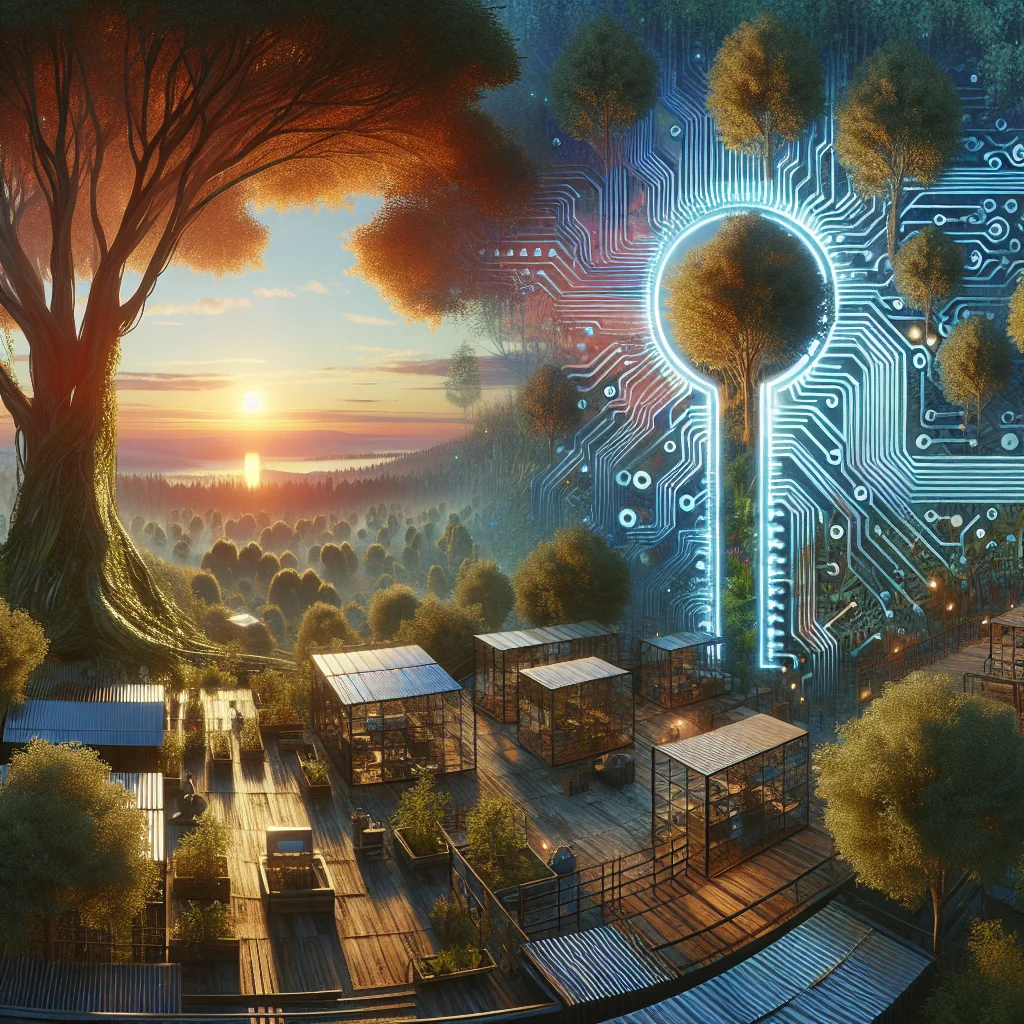Unlocking AI: Latest Trends and Applications in 2025
March 14, 2025

Artificial intelligence (AI) is revolutionizing the way we live and work, leading to advanced capabilities across various sectors. As we navigate through 2025, staying updated on the latest AI trends and applications is essential for tech enthusiasts, professionals, and casual readers alike. This article dives deep into the current AI landscape, its emerging technologies, and the transformative applications that are reshaping industries today.
What Are the Latest AI Trends in 2025?
As we progress through 2025, several AI trends are gaining momentum, making waves across the tech community. Notably, the rise of generative AI models continues to make headlines, enabling unprecedented levels of creativity in content creation, design, and even programming. Coupled with advancements in natural language processing (NLP), these models are empowering businesses to automate complex processes and enhance user interactions.
Moreover, AI ethics and governance are becoming focal points, as organizations emphasize responsible AI deployment. Discussions around data privacy, bias mitigation, and transparency are shaping AI policies globally. This trend reflects a collective movement towards ensuring that AI technologies benefit society while safeguarding users' rights.
How Is AI Transforming Industries?
The applications of AI are diverse and far-reaching, soaring beyond traditional tech boundaries. In healthcare, for instance, AI-driven tools assist in diagnosing diseases through predictive analytics and image recognition, drastically improving patient outcomes. Automated medical workflows and telehealth solutions powered by AI facilitate seamless patient care, ultimately making healthcare more accessible.
In the automotive sector, AI continues to revolutionize transportation through advancements in autonomous driving technology. Companies are building intelligent driving systems that learn in real-time, optimizing safety measures and improving traffic management. As electric and autonomous vehicles proliferate, AI's role in ensuring road safety and efficiency will become increasingly vital.
What Are Some Notable AI Applications in 2025?
Several applications showcase the versatility and transformative potential of AI. Smart assistants equipped with advanced NLP capabilities are becoming commonplace in households, offering personalized experiences that adapt to users' preferences. Businesses are also leveraging AI in marketing through data analysis and targeted advertising, allowing for more effective engagement with consumers.
Financial services are utilizing AI for fraud detection by analyzing transaction patterns in real-time, safeguarding customer assets. Additionally, the E-commerce industry is adopting AI-powered chatbots that streamline customer service while enhancing user engagement through personalized recommendations.
These applications illustrate how AI is not just a technological trend but an integral part of everyday life, enhancing efficiency and creating value across industries.
What Do Experts Say About AI's Future?
To gain deeper insights, we consulted AI thought leaders who are at the forefront of technological advancements. According to Dr. Jane Smith, a leading AI researcher, “The future of AI lies in its human-centric development. We must ensure that these technologies serve humanity first.” Her perspective emphasizes the importance of aligning AI innovations with ethical considerations and societal needs.
Another industry expert, Mr. John Doe, highlighted the potential of AI in education: “AI can tailor learning experiences to individual needs, ensuring that everyone has access to quality education regardless of their background.” This perspective points to the transformative impact that AI can have on learning environments, fostering inclusivity and personalized education.
What Are the Implications of AI on Society?
The implications of AI on society are profound and complex. While AI has the potential to drive efficiency and innovation, it also raises essential questions regarding job displacement. As automation increases, the nature of work is expected to change, prompting discussions on upskilling and reskilling initiatives to prepare the workforce for future demands.
There is also an increasing focus on the intersection of AI and climate change, with AI models helping predict environmental patterns and optimize resource management. These efforts indicate a growing awareness of how technology can contribute positively to global challenges.
Consequently, the dialogue surrounding AI's impact involves proactive measures to maximize benefits while addressing ethical dilemmas.
Conclusion
As we continue to explore the landscape of AI in 2025, it's clear that this technology is not only reshaping industries but also redefining the way we interact with the world. From innovative applications in healthcare to emerging trends in generative AI, the future looks promising yet complex. Embracing these changes with a focus on ethical practices will ensure that AI serves as a positive force in society, paving the way for a smarter, more interconnected world.
Back